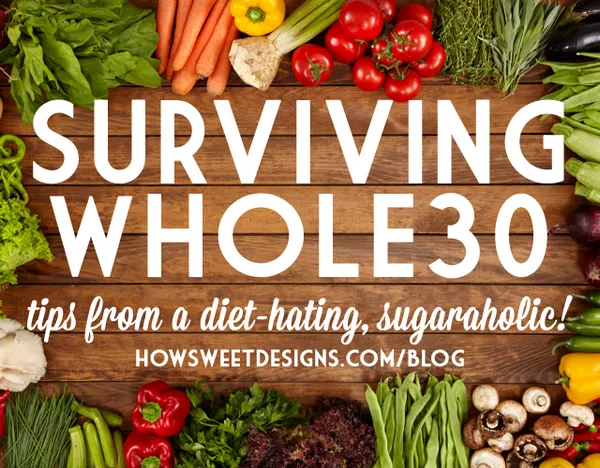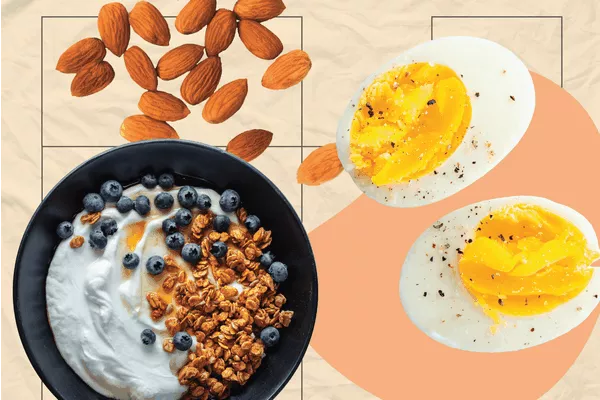Embarking on a Whole30 journey can be both exciting and daunting. The 30-day dietary reset promises numerous benefits, including improved energy levels, better digestion, and weight loss. However, the success of Whole30 hinges on strict adherence to its guidelines, which means knowing precisely what foods to avoid. Understanding what not to eat is crucial for staying on track and reaping the full rewards of the program.
The Whole30 Philosophy: Understanding the Basics
Before delving into what not to eat on Whole30, it’s essential to grasp the fundamental principles of the program. Whole30 isn’t just another diet; it’s a transformative approach to eating that aims to reset your relationship with food and identify potential sensitivities or intolerances. The core tenets of Whole30 include:
1. Elimination: Whole30 involves eliminating certain food groups for 30 days, allowing your body to reset and heal.
2. Whole Foods: The program encourages consumption of whole, nutrient-dense foods while avoiding processed and artificial ingredients.
3. No Counting or Tracking: Unlike calorie counting or portion control, Whole30 focuses on the quality of food rather than quantity.
4. Reintroduction: After the 30 days, foods are gradually reintroduced to assess their impact on your body, helping identify potential triggers for inflammation or digestive issues.
Armed with this understanding, let’s explore the foods that are off-limits during the Whole30 program.
Avoid These Foods During Your Whole30 Journey
1. Grains: Whole30 prohibits all grains, including wheat, barley, rice, oats, and corn. This means no bread, pasta, rice, or cereals, as these are commonly associated with inflammation and digestive issues.
2. Legumes: Legumes such as beans, lentils, peanuts, and soybeans are excluded from the Whole30 plan. These foods contain lectins and phytates, which can interfere with nutrient absorption and may cause digestive distress.
3. Dairy: Dairy products, including milk, cheese, yogurt, and butter, are off-limits during Whole30. Even lactose-free options are excluded due to their potential to trigger inflammation and disrupt gut health.
4. Added Sugars: All forms of added sugars, including honey, maple syrup, agave nectar, and artificial sweeteners, are strictly prohibited. This includes hidden sugars found in processed foods such as condiments, sauces, and flavored beverages.
5. Alcohol: Alcohol in any form, including wine, beer, spirits, and cocktails, is not allowed during the 30-day program. Alcohol can impair liver function, disrupt sleep patterns, and contribute to inflammation, making it incompatible with the goals of Whole30.
6. Processed Foods: Whole30 emphasizes the consumption of whole, unprocessed foods while avoiding anything that comes in a package or contains artificial ingredients, preservatives, or additives. This means saying goodbye to processed snacks, ready-made meals, and convenience foods.
7. Junk Foods: Snack foods like chips, cookies, candy, and pastries are off-limits during Whole30, even if they claim to be made with compliant ingredients. These foods are typically high in refined carbohydrates, unhealthy fats, and additives that can undermine your health goals.
8. Soy: Soy products, including tofu, tempeh, edamame, and soy sauce, are excluded from the Whole30 plan due to their potential estrogenic effects and allergenic properties.
9. MSG, Sulfites, and Carrageenan: Additives such as monosodium glutamate (MSG), sulfites, and carrageenan are not allowed during Whole30 due to their potential to cause adverse reactions and contribute to inflammation.
10. Certain Seed Oils: While healthy fats are encouraged on Whole30, certain seed oils such as soybean oil, corn oil, cottonseed oil, and sunflower oil are to be avoided due to their high omega-6 content and potential for oxidative damage.
Navigating Whole30 Challenges
While the list of foods to avoid may seem extensive, many individuals find success with Whole30 by focusing on the abundance of delicious, nutrient-rich foods they can enjoy. However, navigating social situations, dining out, and cravings can present challenges during the 30-day program.
To overcome these challenges, consider the following strategies:
1. Meal Planning: Plan your meals ahead of time and batch cook to ensure you have compliant options readily available when hunger strikes.
2. Label Reading: Become adept at reading ingredient labels to identify hidden sources of non-compliant ingredients.
3. Seek Support: Joining online communities, enlisting the support of friends and family, or partnering with a Whole30 coach can provide encouragement and accountability throughout your journey.
4. Focus on Non-Scale Victories: Instead of solely focusing on weight loss, celebrate other benefits of Whole30 such as improved energy, better sleep, and clearer skin.
5. Practice Self-Compassion: Understand that slip-ups may happen, and it’s essential to approach them with self-compassion rather than self-criticism. Remember that Whole30 is about progress, not perfection.
Conclusion
Embarking on a Whole30 journey requires a clear understanding of what foods to avoid to achieve success. By eliminating grains, legumes, dairy, added sugars, alcohol, processed foods, and other non-compliant items from your diet, you can reap the full benefits of the program, including improved health and well-being. Armed with knowledge, support, and determination, you can navigate the challenges of Whole30 and emerge with a renewed appreciation for the power of whole, nutrient-dense foods.

















